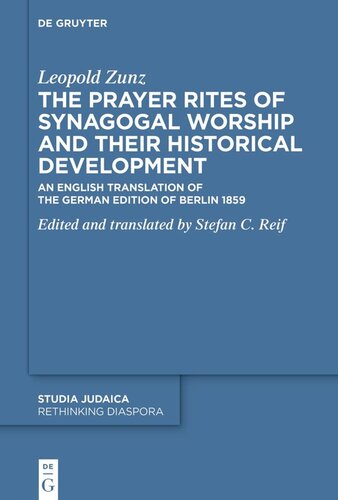

Most ebook files are in PDF format, so you can easily read them using various software such as Foxit Reader or directly on the Google Chrome browser.
Some ebook files are released by publishers in other formats such as .awz, .mobi, .epub, .fb2, etc. You may need to install specific software to read these formats on mobile/PC, such as Calibre.
Please read the tutorial at this link: https://ebookbell.com/faq
We offer FREE conversion to the popular formats you request; however, this may take some time. Therefore, right after payment, please email us, and we will try to provide the service as quickly as possible.
For some exceptional file formats or broken links (if any), please refrain from opening any disputes. Instead, email us first, and we will try to assist within a maximum of 6 hours.
EbookBell Team

0.0
0 reviewsGiven Leopold Zunz’s difficult German style and the tight conciseness of his presentation, it is hardly surprising that no English translation of his Die Ritus (1859) has been published. The Hebrew edition of 2016 does not aim to place this pioneering work in the context of Jewish liturgical history, sometimes opts for a paraphrase, rather than a literal translation, and does not always make it easy to distinguish Zunz from later scholarship. There are undoubtedly English-speaking scholars in current academia who are unacquainted with German and Modern Hebrew but would benefit from reading this classic study. This volume therefore links Die Ritus with Zunz’s other scholarly works by way of a brief introduction, provides a faithful translation, without the result reading more like German than English. It reproduces Zunz’s footnotes in his own highly abbreviated form but offers as an appendix to the introductory essay a bibliographical list that explains references that may not be obvious even to a learned reader. Readers of English will now be able to reach their own conclusions about the stature of Zunz, about his contributions to the study of Jewish liturgy, and, indeed, about any shortcomings that there may have been in his scholarly, theological and political tendencies.